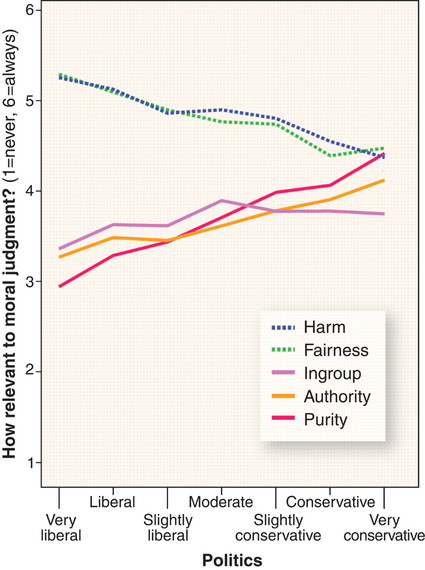
I was amused watching Newt Gingrich explain to a CNN reporter that his feelings about how Americans don't feel safe were as equally valid as the FBI statistics showing crime has decreased. The reporter could not persuade Gingrich that his fears were unfounded. Of course, no one could frame Gingrich's interview any better than John Oliver on Last Week Tonight.
For those of us watching the Trump circus on the outside, it is unsettling, to say the least, watching millions of people led by their fears, and leaders like Gingrich who stoke them despite facts to the contrary. Logically, and statistically, we know most Mexicans are not rapists, most Muslims are not terrorists, and Obama is most certainly not the founder of ISIS. But, as Gingrich pointed out, facts don't matter.
Human beings are not logical. We don't approach life or decisions with facts, we argue with intuition. Moral psychologist, Jonathan Haidt says, "Moral intuitions arise automatically and almost instantaneously, long before moral reasoning has a chance to get started, and those first intuitions tend to drive our later reasoning." Regardless of political or religious affiliation, we generally believe we are right. If the facts don't fit what we're saying, we'll interpret the facts differently, or ignore them altogether.
According to Politifact, a fact-checking organization designed to inform voters and keep the candidates honest, only 22% of what Hillary Clinton has said is absolutely true, and 50% is mostly, or half-true. Compare that to Donald Trump, which shows that 70% of what he has said is mostly false, false, or outright lying. But which numbers you believe, or which numbers you focus on, has to do with how you feel about a candidate, your chosen political party, and your personal beliefs. Facts be damned.
Professors Carol Tavris and Elliot Aronson, in their book, Mistakes Were Made (but not by me), said, "Our convictions about who we are carry us through the day, and we are constantly interpreting the things that happen to us through the filter of those core beliefs."
Our core values are most often handed down to us from our upbringing and social associations. We seldom question what we've been taught and, in fact, go through life confirming what we were taught to believe through the experiences we have. Social scientists call this the "confirmation bias," or the tendency to interpret evidence we see that confirms what we already believe. As I've said before, religious people don't read the Bible for guidance, but for confirmation.
While Jonathan Haidt says we all share the same five moral values - harm/caring, fairness, loyalty, authority, and sanctity/disgust - the ranking liberals and conservatives give these five values is different. Liberals most value reducing harm and encouraging fairness, while conservatives most value purity and authority.
Donald Trumps speaks with the authority many of these conservatives feel is lacking in American culture. Evangelicals are even willing to overlook his three marriages, excuse his language, and accept his word that he is a born-again Christian because his authoritative tone is more important than fairness and harm his policies and beliefs will cause to others. Liberals, on the other hand, will excuse Hillary's email fiasco, questions about Benghazi, and reported conflicts of interest because they believe her policies of fairness and inclusion outweigh her questionable integrity.
The political divisions are not insurmountable, but much of the conversation in America has been hijacked by religious and political beliefs that have little or nothing to do with the facts. Lines are drawn in the sand about how we feel about human rights, gun rights, religious freedoms, climate change, and race. We are fed a stream of consciousness from our choice of media, which serves to confirm what we believe and feel is right. The "other side" merely has an agenda to thwart our good efforts, control our minds and lives, and destroy the America we love.
It is difficult to move past our intuitions, critically think, and come to conclusions which may be contrary to how we feel, particularly in a culture that feeds our suspicious minds and conspiracy theories. But it's not impossible. Rather than planting political signs in our lawns, and bumper stickers on our cars supporting our candidates carte blanche, like our favorite sports teams, conversations with those with whom we disagree may shed light on what they're really thinking.
Photo - Flickr/Gage Skidmore

